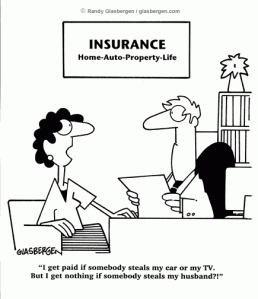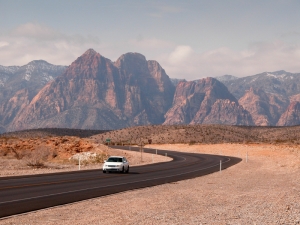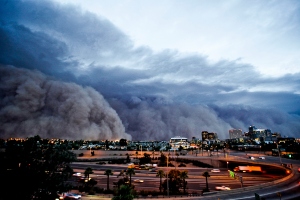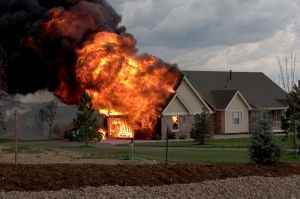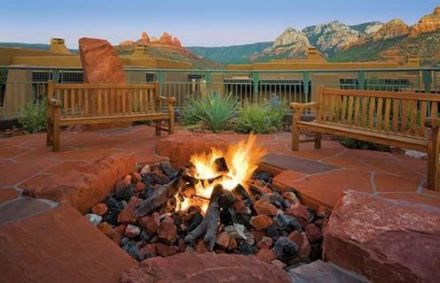
It’s finally cold in Arizona, and this means you are bundled up for days indoors. Sure, it might not get as cold here in Arizona as it does in, say, the Dakotas, but that doesn’t mean that it won’t get chilly. And with that winter chill, some people might want to build a fire in their fireplace, or have a bonfire one evening. That’s why winter is the perfect time to check for fire hazards around your home and to fix them before they become a real problem.
So, what are some of the most common sources of fires around a home? If you’re checking for problems around your own property, you should look for:
- Dead or dried-up vegetation close to your home. This is a true warning sign, as any old plants or dried up wood can very easily turn into a roaring blaze.
- Leaves and sticks clogging your gutters. Old leaves, small twigs, and other debris can fall off trees or get kicked up to your roof by the wind. If they fill your gutters and dry out, they’re basically a tinderbox sitting right against your rafters.
- Old, cracked, or leaking tanks and pipes. If you have gas utilities or even just a propane grill, be mindful that old tanks and pipes can give off gas fumes, creating a potential fire or explosion hazard.
If you find any of these risks around your own home, the first step is to remove the problem sensibly. For instance, many homeowners choose to dispose of leaves and old vegetation by – ironically – burning it. If you do this without looking for other risks first, flying embers and sparks could easily reach your home and create just the problem you were trying to avoid.
So, make sure you dispose of leaves and dried vegetation carefully, either by preferably composting or putting it in the trash, or – if you must burn – by a well-monitored and controlled fire. The best way to do this is to choose a remote, distant location from your home with no large vegetation nearby. If you can, dig a fire pit or a ring around the fire, or place a ring of large stones around the outside.
Also, make sure to check gas lines and old tanks for leaks and cracks. If you do find some, the safest thing to do is to call a professional and let them help you patch the leak. There are also many places where you can exchange old, obsolete propane cylinders for new ones full of fuel for only a small amount more than the propane costs.
Remember, stay safe this winter, and make sure to protect your home from fire. And if you’re curious about other ways to keep yourself and your home safe, check out our insurance website for helpful tips, ideas, and advice.
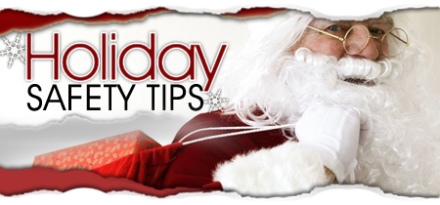
 Even though Hurricane Sandy wreaked havoc on the East Coast, thousands of miles away from Arizona, anyone with a home in the state might be thinking about flood insurance. Well, here’s some good news.
Even though Hurricane Sandy wreaked havoc on the East Coast, thousands of miles away from Arizona, anyone with a home in the state might be thinking about flood insurance. Well, here’s some good news.